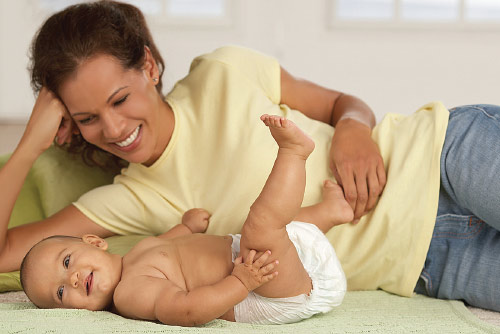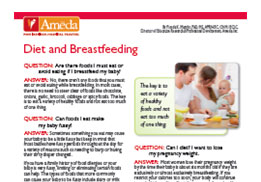
- Eat when you’re hungry. You don’t necessarily need to eat more than usual to increase your milk production. However, if you are very active or breastfeeding multiples, you may need to eat more.
- Eating a well-balanced diet is important to your overall health but is not necessary to produce good quality breast milk.
- All babies go through periods of fussiness. If your baby is fussy, it is not necessarily related to your diet or a sign of a food allergy. If you suspect a food is affecting your baby, try removing it from your diet for a few months.
- Dieting while breastfeeding may be more successful than just dieting as breastfeeding helps burn fat stores. Any diet should include at least 1800 calories per day.
- There are no specific foods linked to increased milk production, milk production is based on how many times and how well your breasts are drained each day.
- If you are a vegetarian or have other special eating needs, it is recommended to eat foods high in B12 or take B12 supplements.
- Caffeine intake in moderation won’t affect your breast milk. One to two cups of coffee or other caffeinated drinks per day is fine unless your baby is unusually sensitive.
- The occasional glass of beer or wine has not been found to be harmful to babies who breastfeed. However, moderate to heavy drinking is risky for your baby.
Learn more about how you can continue to successfully breastfeed and return to work.

Get My Insurance Covered Pump
Complete our online form and we'll take care of the rest!

